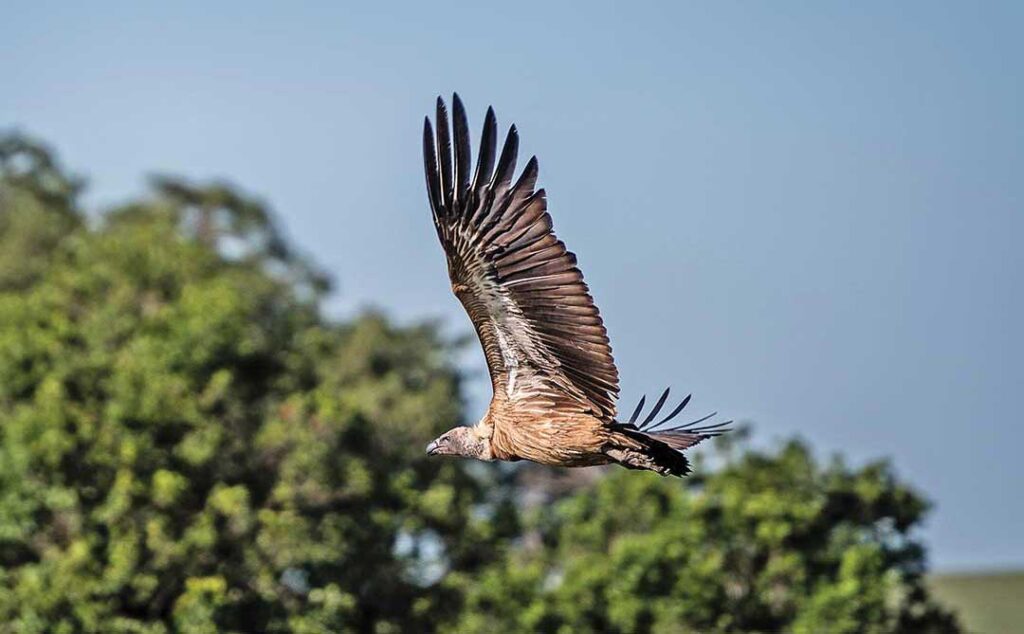REUTERS
In an effort to stop poachers and others who poison wildlife, Zambia’s Department of National Parks and Wildlife is turning to an unlikely ally: vultures.
Park rangers at Kafue National Park tag white-backed and hooded vultures with satellite trackers to alert wildlife managers of poached or poisoned carcasses. In many parts of Africa, livestock owners poison cow carcasses with an agricultural pesticide to kill the predator cats that come to feast. This is viewed as a way to stop lions from attacking their cattle.
But the carcasses also attract the critically endangered white-backed vultures, whose population has declined by more than 90% across West Africa in the past 40 years, largely due to poisoning.
“African white-backed vultures will come [to feed] in really large numbers,” said Corinne Kendall, curator of conservation and research at the North Carolina Zoo, which is leading the program.
“You could have up to 100 vultures, and they’re all going to die. It’s had a huge impact on vultures, and it’s led to these rapid declines. And it’s also a big problem for carnivores.”
Since 2021, the team has tagged 19 vultures in Zambia, draping tiny backpacks containing the satellite tags over their wings to get a bird’s-eye view of the situation.
Although poisonings aren’t “something that have been well known for the Kafue landscape,” said Kendall, the tagged vultures have led rangers to two suspected poisonings near the park. In such incidents, park staff members alerted to the poisoning can dispose of the carcass and try to track down the perpetrator, helping to save the birds and the big cats.
“Poisoning is a silent killer,” Kendall said. “Unless you have something like satellite-tagged vultures, a lot might be going on without anyone knowing about it.”

